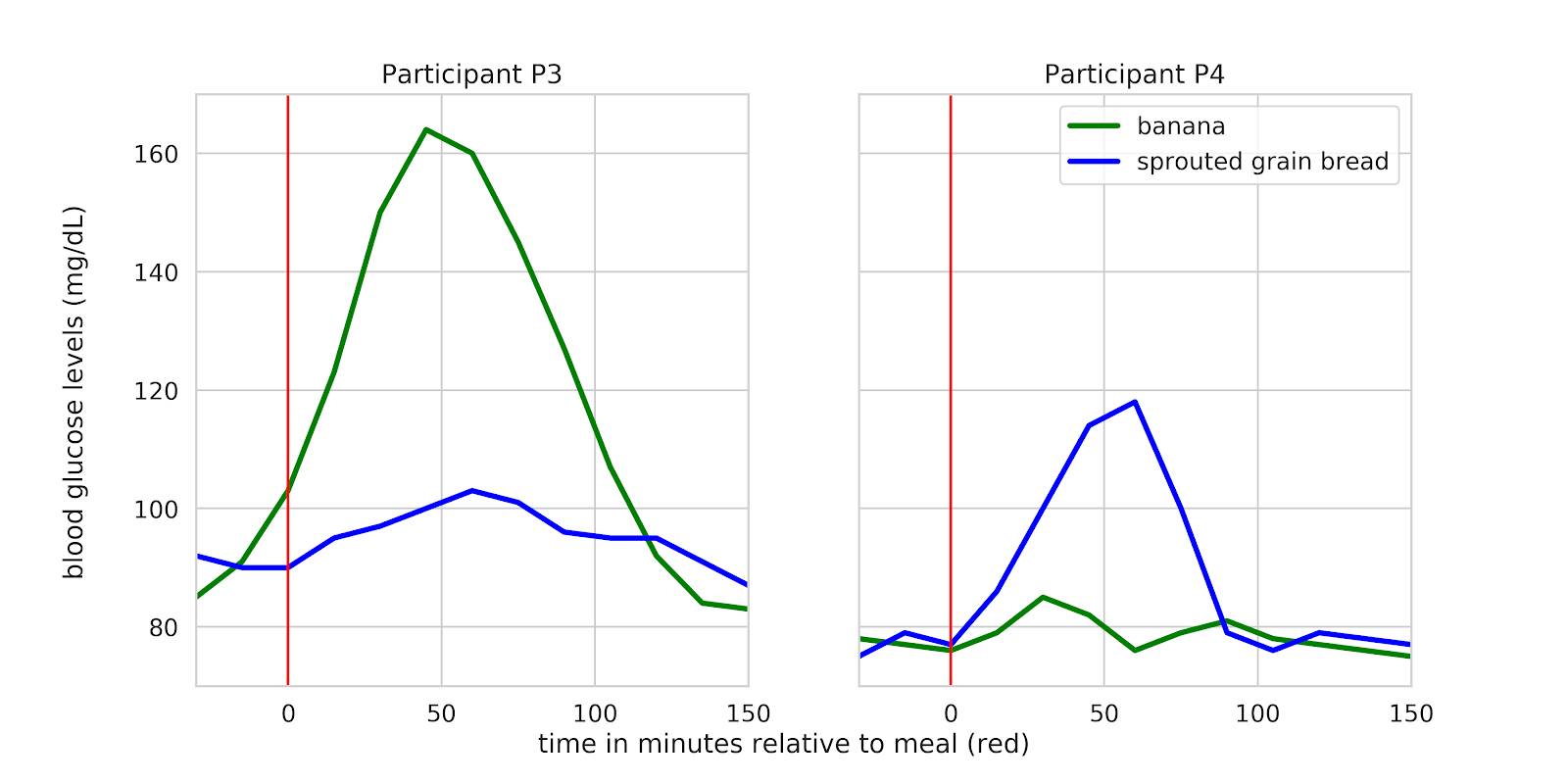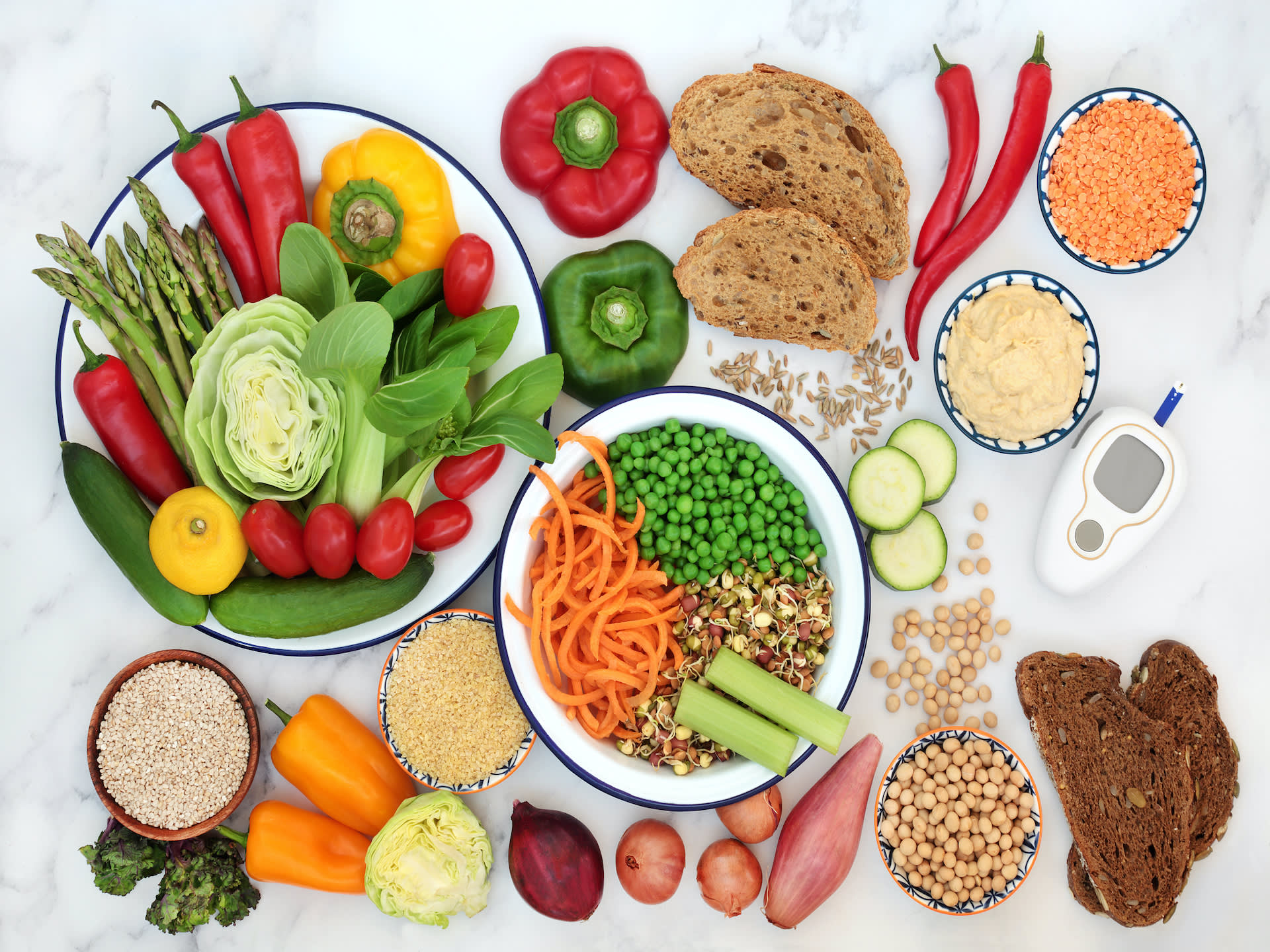
The Glycemic Index (GI) has been a nutrition industry standard since the early ’80s for predicting the human body’s response to foods, especially those high in carbohydrates. The index is a tool to attempt to anticipate how quickly your body’s energy may “crash” after consuming foods that contain carbohydrates—such as white bread, rice cakes, or high fructose corn syrup, which are in the highest GI category of 70>.
Does the Glycemic Index Work?
Explained in brief, the Glycemic Index is a ranking of carbohydrates in foods relating to how they affect blood glucose levels. Those low on the GI index (55 or less) are more slowly metabolized into energy and cause less of a rise in insulin levels. Those high on the GI index (70 or more) are very quickly absorbed and cause spikes in blood sugar levels, which lead to the familiar “sugar crash” after eating.
It’s interesting to note that while the index has been a useful tool for some, it has limitations. The rankings of foods apply only when the food is eaten on an empty stomach, without any other foods. Of course, this isn’t normally how most people eat meals.
Carbohydrates — Nutritional Friend, or Foe?
Carbohydrates, nutritionally, are an essential part of most people’s diets, and not all carbohydrates are created equal. The carbs in a cup of oatmeal are nutritionally different than the carbs in a cup of spinach, as well as how your body will respond to each.
In addition, there is also this fact: not only are all foods (and carbohydrates) not created equally— your body’s personal response to foods does not equal anyone else’s response.
Meaning, one person can eat a slice of homemade banana bread, and based on their body’s individual response, could get sufficient, sustained, natural energy from that food, while another person may end up crashed out on the couch within a half hour. Why is this?
How the Gut Microbiome Influences Glycemic Response
Viome recently published a breakthrough clinical research study on how glycemic response to foods varies greatly based on each person’s gut microbiome.
With the use of the Glycemic Index, it has been widely assumed that all people experience the same reaction to various foods. However, our research showed that two people can have radically different responses, even two opposite responses, between two foods with similar index scores like bananas and certain breads.

It's not the food you eat but what your gut microbiome does with the food you eat that matters most when determining what foods are “healthy” for you or which can give you sustainable energy during the day. The functions of your microbes (what your microbes are doing) determine how your body absorbs and utilizes nutrients.
Instead of relying on the Glycemic Index (and logically, a low-carb diet) to ensure your natural energy derived from whole foods is sustainable during your busy and hectic day, finding out which foods are right for your body, cells, and gut microbiome is the most important place to start.
Precision Nutrition—Delivered.
Vie—Viome’s AI engine behind the food recommendations you see in your Viome app uses the data from this study to classify a range of foods—vegetables, proteins, fruits, fats—into either ‘Enjoy’ or ‘Minimize’ foods for you individually. Minimize foods are more likely to spike your individual blood glucose, and Enjoy foods are more likely to keep your individual blood glucose within an acceptable range, for sustained energy throughout the day. Viome recommends that you can consume your Enjoy foods regularly but limit your Minimize foods to a couple of times per week.
References:
https://www.eatright.org/food/nutrition/dietary-guidelines-and-myplate/what-is-glycemic-index
The information on the Viome website is provided for informational purposes only and with the understanding that Viome is not engaged in rendering medical advice or recommendations. Viome is providing this educational information to share the exciting developments being reported in the scientific literature about the human microbiome and your health. Viome products are not intended to diagnose, treat, or prevent any disease.



